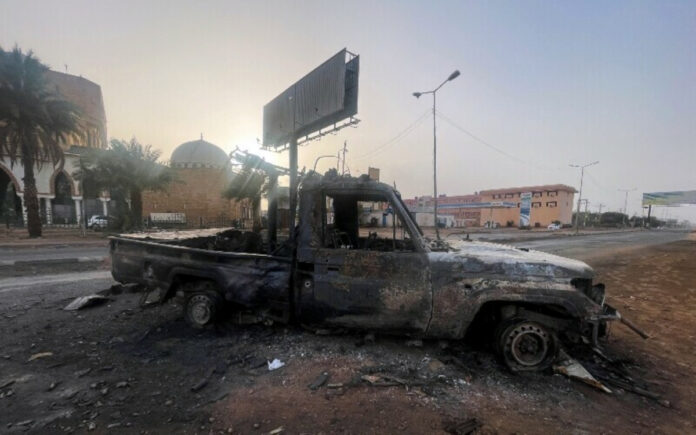Khartoum: Sudan’s Rapid Support Forces (RSF) announced on Sunday that it had regained control of a key logistical base in North Darfur, a day after rival forces allied with Sudan’s army had seized it. This development marks a significant escalation in the ongoing conflict between the RSF and the army, which erupted in April 2023. North Darfur has witnessed some of the most intense fighting as the army and allied Joint Forces—comprising various former rebel groups—struggle to retain their last footholds in the Darfur region.
On Saturday, the Joint Forces and the army declared that they had taken over the al-Zurug base, a critical logistical hub for the RSF. The base had reportedly been used to channel supplies from Chad and Libya during the 20-month conflict. According to their statements, dozens of RSF soldiers were killed, vehicles destroyed, and significant supplies captured during the raid.
Ethnic Tensions and Allegations of Atrocities
The capture and subsequent recapture of the base have raised fears of heightened ethnic tensions in the region. Analysts warn that the incident could exacerbate divisions between the Arab tribes supporting the RSF and the Zaghawa tribe, which largely constitutes the Joint Forces.
The RSF accused the Joint Forces of committing atrocities during their brief control of the base. In a statement released on Sunday, the RSF alleged, “The Joint Forces carried out ethnic cleansing against innocent civilians in al-Zurug and intentionally killed children, women, and the elderly and burnt and destroyed wells, markets, homes, the health center, and schools.”
In contrast, the Joint Forces claimed that the RSF had used the base as a “launching point for barbaric operations against civilians” in areas including al-Fashir, the capital of North Darfur. Al-Fashir remains one of the most active frontlines in the conflict.
Rising Civilian Casualties
The human toll in al-Fashir has been devastating. Since mid-April, at least 782 civilians have been killed in the area, according to a United Nations human rights report. The casualties stem from relentless attacks involving heavy artillery, suicide drones deployed by the RSF, and airstrikes and artillery fire from the army.
Also Read | Syria Eyes Unified Military Under State Control
On Sunday, the al-Fashir Resistance Committee reported a barrage of at least 30 missiles targeting various parts of the city. Activists warn that continued conflict in the city could bolster the RSF’s ambitions to establish a parallel government to the national administration currently based in Port Sudan.
Strategic Implications
Control of North Darfur remains a pivotal factor in the wider conflict. Analysts suggest that securing al-Fashir and other strategic locations could enhance the RSF’s efforts to consolidate power in the region. Meanwhile, the ongoing hostilities have further complicated efforts to mediate peace and address the humanitarian crisis gripping Sudan.



